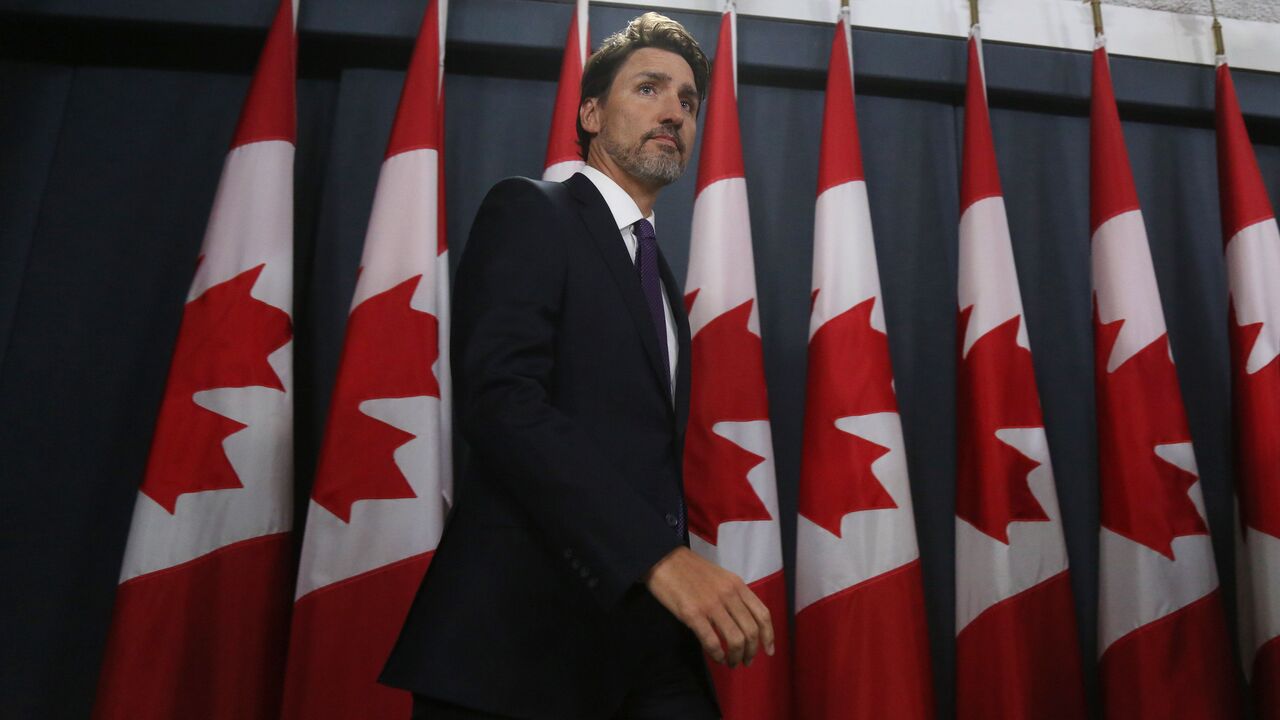How significant is Canada's designation of Iran's IRGC as terrorist organization?
Iranian Canadians have been advocating for designation of the IRGC for years, including after the downing of Ukraine International Airlines flight 752.

Canada designated Iran’s Islamic Revolutionary Guard Corps (IRGC) as a terrorist organization on Wednesday, in a move that has significant symbolic value for the Iranian diaspora but may not significantly affect the organization.
Public Safety Minister Dominic LeBlanc made the announcement, saying, “This action sends a strong message that Canada will use all of the tools at its disposal to combat the terrorist entity of the IRGC,” the Canadian Broadcasting Corporation reported.
Under the measure, individuals can be charged with providing financial or material support to the IRGC.
The Iranian government summoned the Italian ambassador in Tehran, who represents Canada’s interests in the country, to protest the designation on Thursday, the official Islamic Republic News Agency reported. In a Thursday post on X, Acting Foreign Minister Ali Bagheri-Kani called the move a “malicious provocation,” adding that the “Canadian government will be responsible for the consequences of this provocative and irresponsible decision."
'Bittersweet'
Pressure has been building on Prime Minister Justin Trudeau and his Liberal Party government to make the designation for years, with calls coming from the Iranian-Canadian community, the Conservative Party and families of Ukraine International Airlines flight 752 victims, per the CBC.
The flight was shot down by the IRGC in January 2020 while Iran was attacking US forces in neighboring Iraq in response to the killing of IRGC Quds Force commander Qasem Soleimani. All 176 people on board were killed, including 55 Canadian citizens. Iranian authorities said the incident was a mistake, but victims as well as the Canadian and Ukrainian governments have accused the Islamic Republic of failing to hold the perpetrators responsible.
Toronto-based journalist Samira Mohyeddin said the Iranian-Canadian community is “very, very happy” about the designation. At the same time, she said the feeling is “bittersweet” because the community, including Flight 752 victims, pushed for the designation for years, to no avail.
"Even though the family members of those who were killed begged them for four years, held protests, rallies, marches, went into the House of Commons, all of that, and there was no movement,” Mohyeddin told Al-Monitor.
Mohyeddin said the designation is largely related to domestic politics, pointing out that Trudeau’s Liberal Party is not doing well in polls ahead of next year’s election.
The Conservative Party criticized Trudeau for not designating the IRGC sooner. In a Wednesday post on X, leader Pierre Poilievre accused Trudeau of failing to protect Canadians from the IRGC in recent years, referencing Flight 752.
“Trudeau failed for years to protect Canadians from the thugs in Tehran,” said Poilievre. “The IRGC murdered 55 Canadian citizens whose families are still waiting for justice; 700 agents are operating in Canada.”
Mohyeddin said the timing of the designation is “suspect.” She pointed out that Canada made the decision after Hamas’ Oct. 7 attack on Israel — referencing Iran’s support for Hamas — but not after Flight 752.
“I also think it's supplanted with Oct. 7 and Iranian support for Hamas,” she said. “Oct. 7 happened, and then you saw this. … It’s almost showing that you didn't really care when your own Canadian citizens were killed, when Iranian Canadians were killed.”
In a Thursday article, the anti-Iranian government think tank Foundation for Defense Democracies noted that pressure to designate the IRGC “significantly grew” following Oct. 7, pointing to a December letter from a bipartisan group of congresspersons asking Trudeau of such.
Canada’s Center for Israel and Jewish Affairs said it “welcomes” the designation, calling it a “long-awaited decision” in a Wednesday statement.
'Symbolic effect'
In 2022, Canada designated Iran as a “regime that has engaged in terrorism and systematic or gross human rights violations.” As a result, senior officials, including senior IRGC members, were barred from entering Canada, according to a government statement.
According to Mohyeddin, Wednesday’s announcement may not have significant practical effects due to these pre-existing restrictions on the IRGC. She said the move has “symbolic” importance nonetheless, especially considering the United Kingdom and the European Union do not designate the IRGC as terrorists.
“The main crux is the symbolic effect of this because the Iranian Canadian community, whether in Canada, or the US, or in England, Europe — they've been asking for this designation for a very long time, particularly after the killing of Mahsa Amini,” she said, referring to the 2022 death of a Kurdish Iranian woman that sparked widespread protests in Iran.
The United States designated the IRGC as a terrorist organization in 2019 under then-President Donald Trump. The European Parliament passed a resolution last year calling on the European Union to designate the IRGC, though the EU has yet to do so.
British media reported in April that Prime Minister Rishi Sunak is under increasing pressure to designate the IRGC after Iran’s attack on Israel.
Saudi Arabia and Bahrain designated the IRGC in 2018.
Legal complications
Iran has mandatory military service for men, and conscripts cannot choose which branch they serve in. As a result, some Iranians may be forced to serve in the IRGC against their will. The number of Iranians in Canada who served in the organization could pose legal complications, according to Mohyeddin.
“How are they going to prevent all of these young men from being cast into this wide net?” she asked.
There are more than 210,000 Iranians living in Canada according to the 2016 census.








